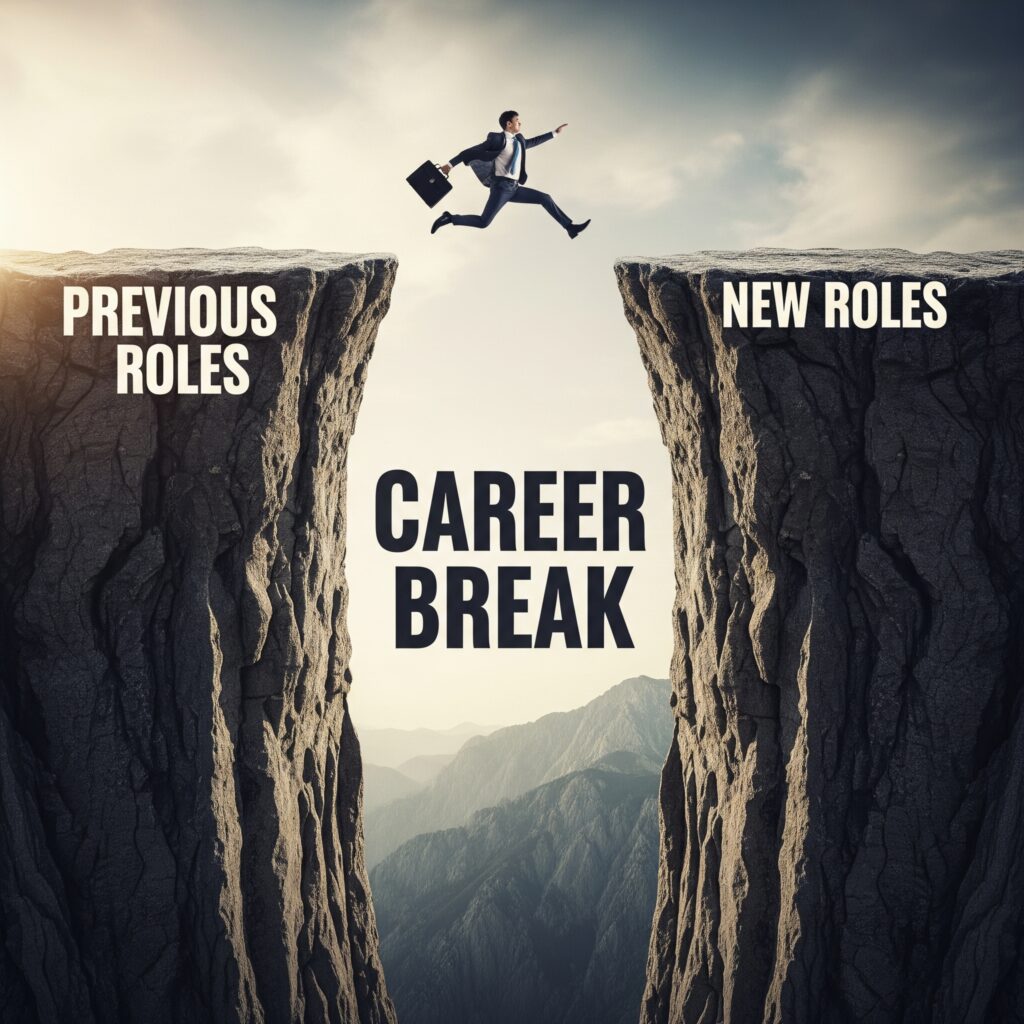
It’s a question that can fill even the most experienced professional with dread:
“Talk me through your career gap…?”
I see it all the time.
Whether you’re staring at your CV, updating your LinkedIn, or sitting in an interview, that period when you weren’t working can feel like a major hurdle.
The story you might be telling yourself is that it makes you look unfocused, uncommitted, or that you’ve fallen behind.
I understand completely why you’d feel that way.
It’s a tough situation.
But I want to reframe this for you.
A career path isn’t always a straight line.
Life happens.
Redundancy, relocating, taking time out to care for family, or stepping away to recover from burnout. These are all perfectly normal parts of a modern career.
The mistake many people make is trying to hide or downplay their break.
They might stretch the dates of their previous jobs or just hope no one will bring it up.
This approach rarely works.
Leaving an unexplained gap invites suspicion.
It can make it look like you have something to hide, undermining a hiring manager’s trust before you’ve even had a chance to prove your worth.
The key is to address it.
You need to own your story, and you can do this with a simple, honest, and professional approach.
The Proactive Approach: Address It Head-On
Instead of leaving a void on your CV, create a single, clear entry in your work experience section.
It should look something like this:
Career Break | March 2024 – August 2025
Then, add one concise, professional line to explain the reason. Let me show you how this works for different situations.
Scenario 1: Redundancy
I recently worked with a client, let’s call him Mark, a Senior Manager in financial services.
His role was made redundant after more than a decade with the company.
He was brilliant at his job, but he felt a sense of shame and worried it made him look unwanted.
We reframed it. Redundancy is a business decision, not a reflection of your performance.
Here’s how we positioned it on his CV:
Career Break | January 2024 – Present
Planned career break following a period of company-wide restructuring to assess next career steps
This is factual, neutral, and immediately explains the situation. It shows you were thoughtful about your next move rather than just sitting idle.
Scenario 2: Health and Wellbeing
Another client, Sarah, came to me after taking six months off. She was completely burned out from a high-pressure role in the tech sector and needed to step away to recover. She was worried that admitting this would make her look weak or unable to handle stress.
We worked together to present it as a story of self-awareness and strength.
This is what we put on her CV:
Career Break | June 2024 – December 2024
Took a planned break to focus on personal wellbeing, now returning to the job market re-energised and with a clear focus.
This works because it’s positive and forward-looking. It avoids oversharing personal medical details but shows you are self-aware and ready for your next challenge. In today’s world, any good employer will respect that.
Scenario 3: Relocation or Family Commitments
Claire had a fantastic track record in professional services but took a year off when her family relocated. Her main concern was that employers would think her skills were no longer current.
It’s a common fear, but one that’s easily addressed.
We framed her career break like this:
Career Break | July 2023 – August 2024
Managed a family relocation while undertaking professional development to maintain industry knowledge.
If you did any courses, voluntary work, or freelance projects during your time off, absolutely mention them. It shows you remained proactive. Claire had completed a new Project Management qualification, which we made sure to highlight.
Discussing the Break in an Interview
Your CV gets you in the door. The next step is talking about it confidently in an interview.
The strategy is the same: be brief, be positive, and pivot back to the role.
If they ask, you can say something like:
“After my department was restructured, I took the opportunity to take a short break and evaluate what I really wanted from my next role. Your position really stood out to me because my experience in managing large-scale software implementations aligns perfectly with what you’re looking for.”
See what happened there?
You answered the question honestly and immediately brought the conversation back to their needs and your value.
A career break is not a career-ender.
It does not erase the years of experience and skills you’ve built up.
It’s just a chapter in your story.
By owning it, you show confidence and honesty. These are two traits every employer is looking for.
If you’re struggling to frame your career story and feel a break is holding you back, let’s have a chat.
Book a free, no-obligation 30-minute consultation, and we can work on a strategy to present your experience in the strongest possible light.
